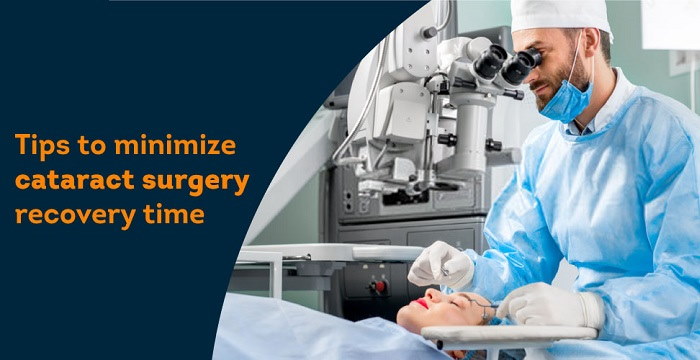While many people can be fearful and nervous about cataract eye surgery, or any laser eye surgery from Insight Eye Clinic, it’s often the recovery time that some fear the most. The actual surgery can be straightforward, quick, and painless, but then you have to worry about doing the right or wrong things in the days and weeks after the surgery.
However, to ensure your cataract surgery goes off without a hitch, it can be worth doing some of the following things. You may then recover faster and easier than you may have thought possible.
Use Eye Drops
Immediately after your surgery, your eye doctor will have prescribed you antibiotic eye drops. These are designed to prevent infection and help with internal inflammation. While you might think your body is capable of handling infection risks on its own, it’s essential to use any eye drops prescribed to you – and follow the instructions for their use.
You will need to apply these eye drops several times a day for around the first week after surgery. Depending on how much inflammation is present, it may also help to use the eye drops for a few weeks or up to a month or so after the surgery.
Follow Your Healthcare Provider’s Recommendations
You may know yourself quite well, but your healthcare provider or eye doctor knows the body and its healing potential even better. Don’t stray from their recommendations on how to care for your eyes after surgery.
If they recommend any particular actions, do as they suggest. Sticking to their recommendations may mean you can speed up your recovery time while giving your eyes the best chance to heal.
Stay Out of the Hot Tub
As tempting as it can be to jump into the hot tub or even go swimming, it’s a good idea to avoid these environments for at least the first week after your surgery. Swimming pools and hot tubs can both increase your chance of infection, which can slow down your recovery.
Don’t Overdo It
Even though it might seem strange to have to perform light duties for your eyes, refraining from heavy lifting and strenuous tasks can put you in the best position to heal. These tasks not only put pressure on the muscles in your body but also on your eyes. Take it easy for the first few weeks after surgery.
Protect Your Eyes
Your eyes need all the help they can get to heal, which is why your eye doctor would have prescribed eye drops. However, taking eye drops is just one part of the recovery journey. Help them even further by staying away from environments with eye irritants.
These irritants include dirt, dust, wind, and pollen. Not only can these irritants lead to infection, but they can also cause you to rub your eyes, which is not recommended during the recovery period.
Don’t Sneeze or Vomit
It might be easier said than done, but if you can avoid sneezing and vomiting directly after surgery, then try and do so. If you know what typically makes you sneeze, avoid those triggers. Vomiting may be harder to avoid but refrain from visiting anyone who has been recovering from a stomach bug in the days leading up to your surgery.
You will be back to normal activities after eye cataract surgery sooner than you think. However, the better you take care of your eyes, the faster your healing experience may be.

